
Enchanting Tambun: The Heart of Ipoh's Natural Wonders
Nestled within the lush landscapes of Ipoh, Tambun is a captivating neighbourhood renowned for its stunning natural beauty and rich cultural heritage. This picturesque locale is framed by limestone hills and hot springs, making it a haven for nature enthusiasts and adventure seekers alike. Tambun offers a serene escape from the bustling city life, with a perfect blend of relaxation and exploration. One of the main attractions in Tambun is the Lost World of Tambun, a family-friendly theme park that boasts thrilling rides, a petting zoo, and rejuvenating hot springs. The park is set against a backdrop of verdant hills, creating an enchanting atmosphere for visitors of all ages. For those seeking a more tranquil experience, the Tambun Hot Springs provide a soothing retreat, with mineral-rich waters that are believed to have therapeutic properties. Food lovers will delight in the culinary offerings of Tambun, particularly its famous pomelo farms. Visitors can sample fresh, juicy pomelos and other local delicacies at the various farms and markets scattered throughout the area. Additionally, the neighbourhood is dotted with charming cafes and traditional eateries, offering a taste of authentic Malaysian cuisine. Tambun is also home to intriguing cave temples, such as the Perak Cave Temple and the Kek Lok Tong Cave Temple. These sacred sites are carved into the limestone hills and feature intricate statues, murals, and breathtaking views of the surrounding landscape. The combination of natural beauty and spiritual significance makes these temples a must-visit for any traveller. Whether you’re seeking adventure, relaxation, or a cultural experience, Tambun in Ipoh is a destination that promises to enchant and inspire. Its unique blend of attractions and serene environment make it a perfect getaway for tourists looking to explore the hidden gems of Malaysia.
Local tips in Tambun
- Visit the Lost World of Tambun early in the morning to avoid crowds and enjoy all the attractions at a leisurely pace.
- Take a dip in the Tambun Hot Springs during the evening for a more relaxing experience as the temperatures cool down.
- Make sure to try the local pomelos, especially from the Tambun Pomelo Farm, as they are known for their superior taste and quality.
- Wear comfortable shoes and bring a flashlight when visiting the cave temples, as some paths can be uneven and dimly lit.
- Plan your visit during the dry season, from May to September, to enjoy outdoor activities without the interruption of rain.
Enchanting Tambun: The Heart of Ipoh's Natural Wonders
Nestled within the lush landscapes of Ipoh, Tambun is a captivating neighbourhood renowned for its stunning natural beauty and rich cultural heritage. This picturesque locale is framed by limestone hills and hot springs, making it a haven for nature enthusiasts and adventure seekers alike. Tambun offers a serene escape from the bustling city life, with a perfect blend of relaxation and exploration. One of the main attractions in Tambun is the Lost World of Tambun, a family-friendly theme park that boasts thrilling rides, a petting zoo, and rejuvenating hot springs. The park is set against a backdrop of verdant hills, creating an enchanting atmosphere for visitors of all ages. For those seeking a more tranquil experience, the Tambun Hot Springs provide a soothing retreat, with mineral-rich waters that are believed to have therapeutic properties. Food lovers will delight in the culinary offerings of Tambun, particularly its famous pomelo farms. Visitors can sample fresh, juicy pomelos and other local delicacies at the various farms and markets scattered throughout the area. Additionally, the neighbourhood is dotted with charming cafes and traditional eateries, offering a taste of authentic Malaysian cuisine. Tambun is also home to intriguing cave temples, such as the Perak Cave Temple and the Kek Lok Tong Cave Temple. These sacred sites are carved into the limestone hills and feature intricate statues, murals, and breathtaking views of the surrounding landscape. The combination of natural beauty and spiritual significance makes these temples a must-visit for any traveller. Whether you’re seeking adventure, relaxation, or a cultural experience, Tambun in Ipoh is a destination that promises to enchant and inspire. Its unique blend of attractions and serene environment make it a perfect getaway for tourists looking to explore the hidden gems of Malaysia.
Iconic landmarks you can’t miss
Lost World of Tambun Theme Park
Discover thrilling rides and exotic wildlife at Lost World of Tambun, a family-friendly theme park in the heart of Ipoh, Malaysia.
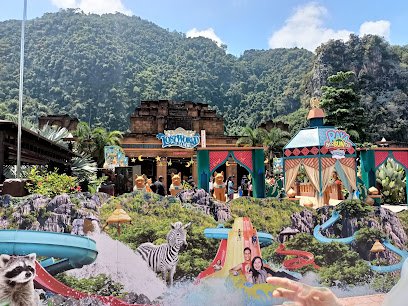
Sunway Lost World Hotel
Experience the perfect blend of adventure and relaxation at Sunway Lost World Hotel, adjacent to the exhilarating Lost World of Tambun theme park.
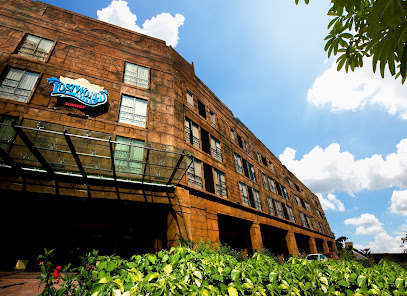
Sunway Lost World Theme Park : Hot Springs & Night Park
Experience the thrill and relaxation at Sunway Lost World Theme Park, where adventure meets tranquility in the heart of Ipoh.
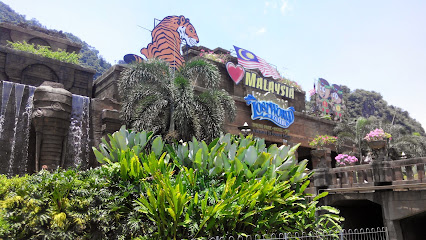
Tambun Pomelo GoChin Agro Farm
Explore the lush orchards of Tambun Pomelo GoChin Agro Farm and indulge in Malaysia's famous pomelos while enjoying a delightful agro-tourism experience.
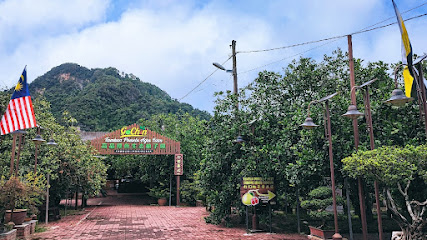
Tambun Cave
Explore the breathtaking Tambun Cave, a heritage site filled with ancient rock art and stunning limestone formations near Ipoh, Malaysia.
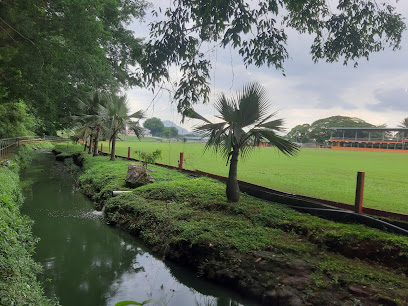
Enlightened Heart Buddhist Temple அறிவொளி இதய புத்த கோவில் 打捫心意佛院
Experience serenity and cultural richness at the Enlightened Heart Buddhist Temple in Tambun, a hidden gem for spiritual exploration in Malaysia.
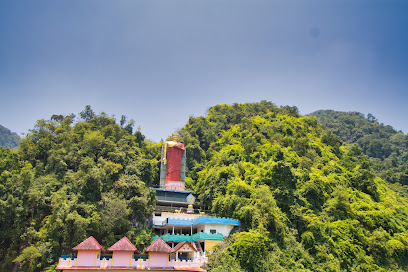
Bandar Baru Tambun Woodlands Park
Experience the natural beauty and tranquility of Bandar Baru Tambun Woodlands Park, a serene getaway in Ipoh perfect for families and nature lovers.
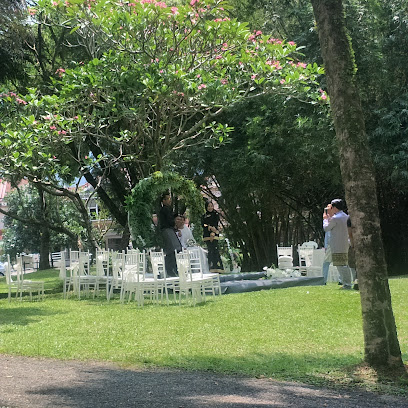
as homestay tambun ipoh
Discover the charm of Ipoh with a cozy stay at As Homestay Tambun, where comfort meets Malaysian hospitality in a vibrant setting.
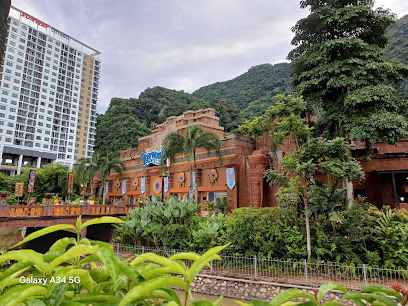
Bandar Baru Tambun
Experience comfort and culture in Bandar Baru Tambun, your perfect base for exploring the rich heritage and natural beauty of Ipoh, Perak.
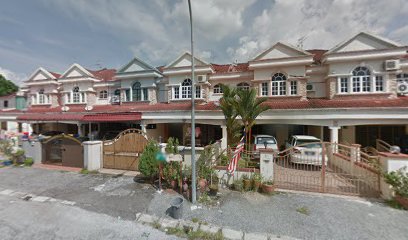
八景宮
Discover the serene Bajing Temple in Ipoh, a stunning Buddhist sanctuary filled with rich culture and tranquil beauty, perfect for spiritual seekers and travelers alike.
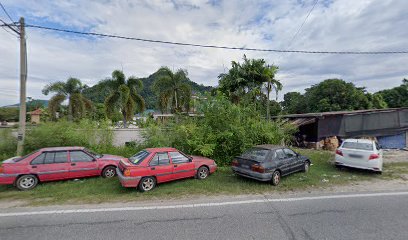
HomestayRumah FARIZ Lost World Of Tambun in Ipoh
Discover comfort and convenience at HomestayRumah FARIZ in Tambun, your perfect lodging near the Lost World of Tambun.
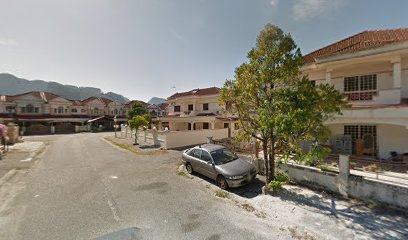
Gunung Tambun
Explore the breathtaking Gunung Tambun in Ipoh, Perak - a historical landmark offering stunning views and rich cultural heritage.
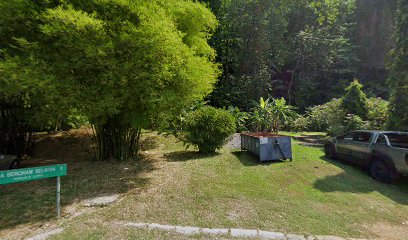
Gunung Ginting
Discover the enchanting Gunung Ginting, a historical landmark in Tambun, where nature meets rich cultural heritage in Malaysia's breathtaking landscapes.
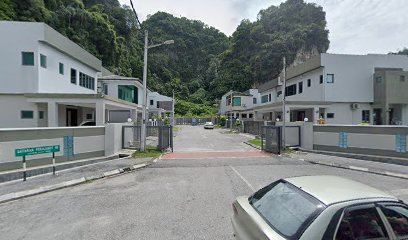
Unmissable attractions to see
Gunung Lang Recreational Park
Explore the serene landscapes of Gunung Lang Recreational Park in Ipoh, a perfect blend of nature and adventure for every tourist.

Lost World of Tambun Theme Park
Experience the excitement and adventure of Lost World of Tambun Theme Park, where thrilling rides and family fun await in the heart of Ipoh, Malaysia.
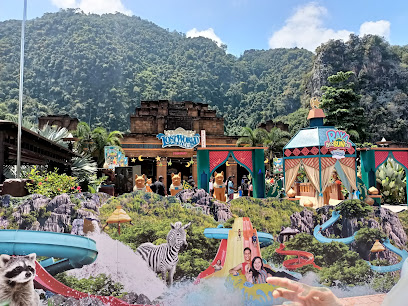
Sunway Lost World Hotel
Embrace adventure and relaxation at Sunway Lost World Hotel, your ultimate destination for fun-filled family experiences in Ipoh, Malaysia.
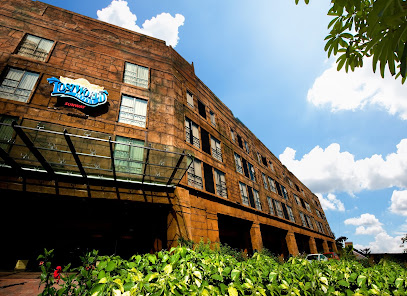
Qing Xin Ling Leisure & Cultural Village
Explore the rich culture and stunning landscapes of Qing Xin Ling Leisure & Cultural Village, a hidden gem in Ipoh, Malaysia, perfect for all travelers.

Sunway Lost World Theme Park : Hot Springs & Night Park
Experience the ultimate family adventure at Sunway Lost World Theme Park with exhilarating rides, relaxing hot springs, and enchanting night experiences.
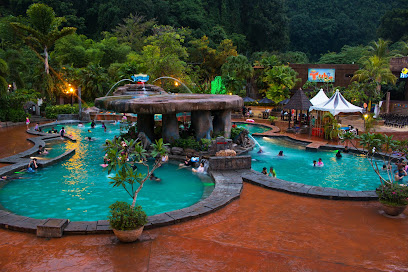
Tambun Pomelo GoChin Agro Farm
Explore the scenic Tambun Pomelo GoChin Agro Farm in Ipoh for a taste of Malaysia’s famed pomelos amidst beautiful orchards.
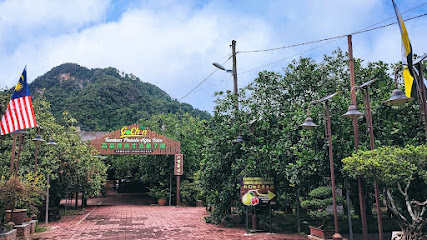
Geology Museum
Discover the Earth's treasures at the Geology Museum in Ipoh, a must-visit for geology lovers and curious travelers exploring Malaysia.
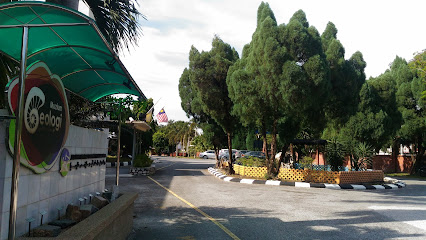
Tambun Cave
Explore the captivating Tambun Cave in Ipoh, Perak, where ancient heritage meets stunning limestone formations in a breathtaking natural setting.
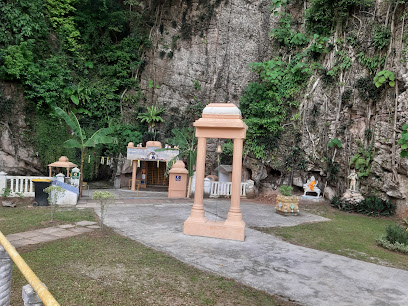
Bandar Baru Tambun Woodlands Park
Explore the lush serenity of Bandar Baru Tambun Woodlands Park, a tranquil escape for nature lovers in Ipoh, Malaysia's scenic landscape.
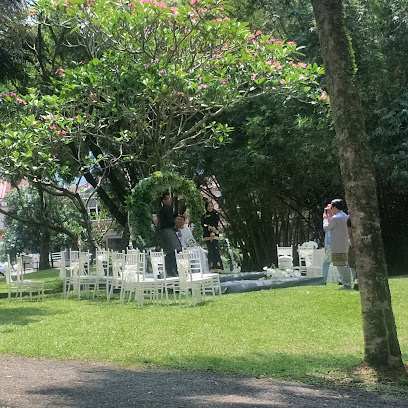
Essential places to dine
Restoran Hong Kong Dim Sum BFB 八分半点心楼
Discover authentic dim sum delights at Restoran Hong Kong Dim Sum BFB in Ipoh - a breakfast paradise for food lovers.
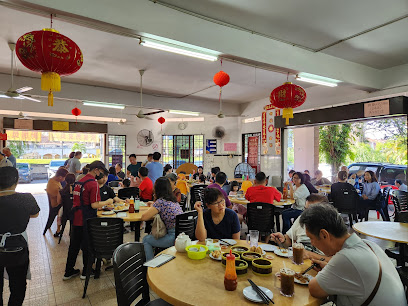
Restoran Sam Poh (Tambun)
Discover authentic Chinese flavors at Restoran Sam Poh in Tambun, where culinary tradition meets vibrant atmosphere.
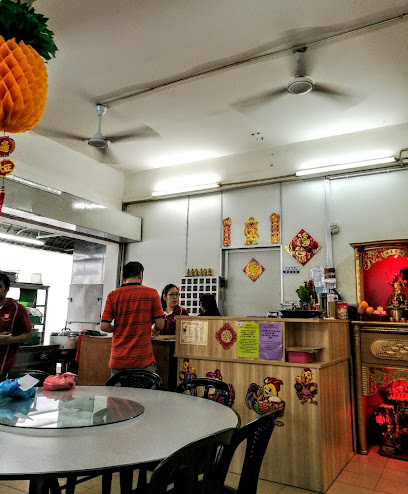
Citrus Wine & Dine
Discover Citrus Wine & Dine in Ipoh - where culinary artistry meets an exquisite wine selection for an unforgettable dining experience.
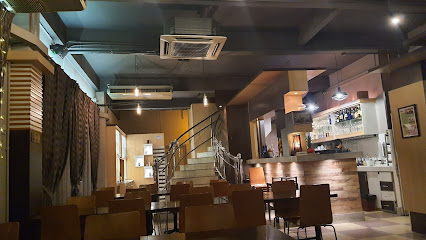
Cuisines Restaurant
Discover the exquisite flavors at Cuisines Restaurant within The Haven Resort, where every meal is a culinary journey amidst breathtaking views.
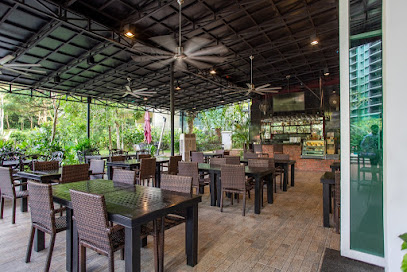
Cafe Amir
Discover authentic Malaysian cuisine at Café Amir in Kampung Lata, where every dish tells a story.
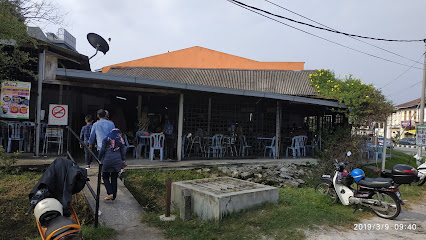
Chin Taste
Experience authentic Malaysian flavors at Chin Taste in Ipoh – where tradition meets taste!
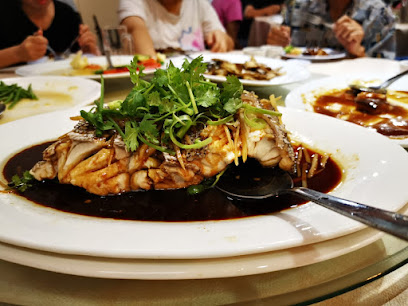
Restoran Sun Poh Kee | 鸿图食坊 | 烧鸭鸡饭店
Discover authentic Malaysian barbecue at Restoran Sun Poh Kee in Ipoh – where succulent roasted duck meets unforgettable flavor.
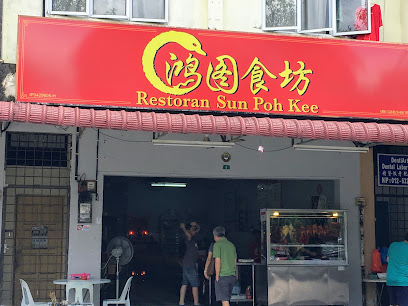
Garden Terrace Lost World of Tambun
Discover family fun and relaxation at Garden Terrace Lost World of Tambun – an enchanting destination in Sunway City Ipoh offering thrilling rides and serene hot springs.
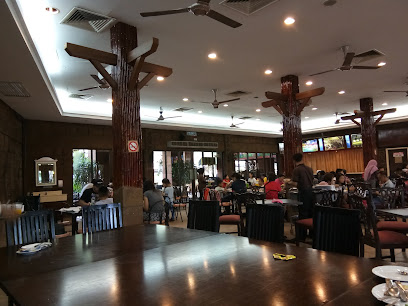
Muslim Chee Cheong Fan Tambun
Discover authentic Malaysian flavors at Muslim Chee Cheong Fan Tambun in Ipoh - A must-visit for food lovers seeking traditional delights.
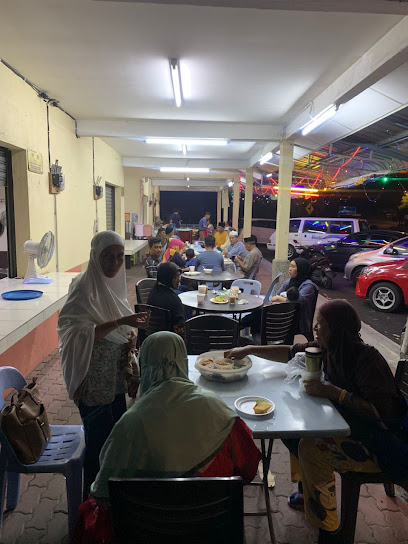
RESTORAN FENDI
Experience exquisite seafood dining at Restoran Fendi in Ipoh - where fresh flavors meet Malaysian culinary tradition.
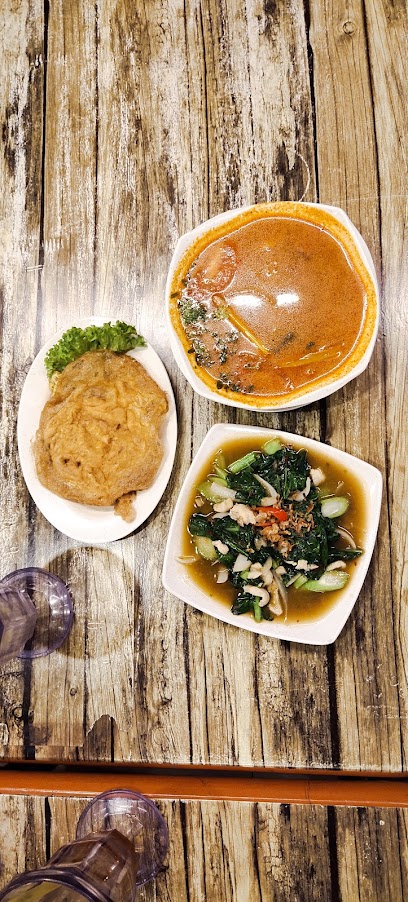
Markets, malls and hidden boutiques
AEON Kinta City
Experience shopping bliss at AEON Kinta City, a bustling mall in Ipoh featuring diverse retail stores, dining options, and family-friendly entertainment.
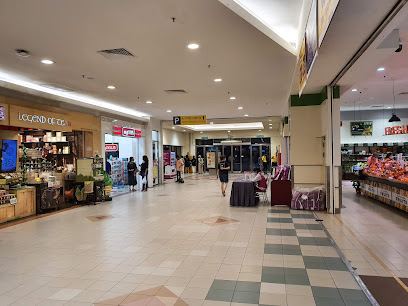
EP CONCEPT
Discover the vibrant shopping experience at EP CONCEPT in Ipoh, a perfect blend of retail therapy and culinary delights.
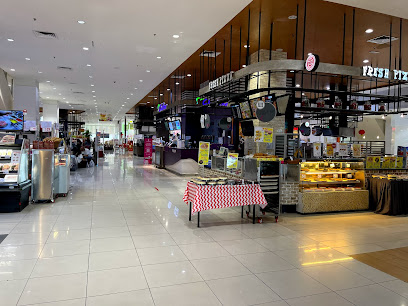
Angsana Ipoh Mall
Discover the vibrant Angsana Ipoh Mall, a premier shopping destination in Perak, offering a mix of retail, dining, and entertainment experiences.
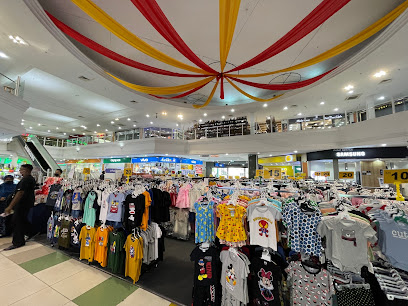
Eco-Shop @ Tambun
Explore Eco-Shop @ Tambun for a unique eco-friendly shopping experience filled with organic delights and local flavors.
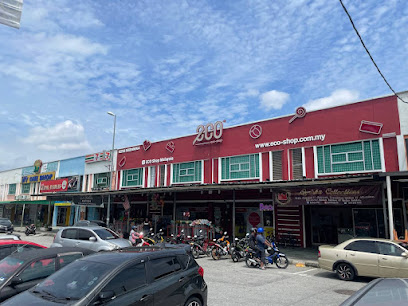
TF Value-Mart Tambun
Discover the best of local and international products at TF Value-Mart Tambun, your premier shopping destination in Ipoh.
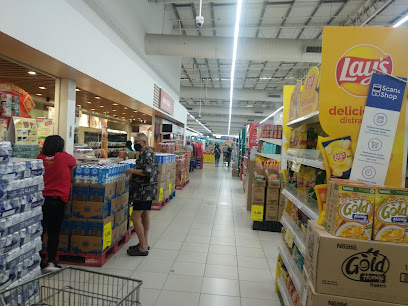
Guan Heong Biscuit Shop
Discover the rich flavors of tradition at Guan Heong Biscuit Shop in Ipoh, a celebrated Chinese bakery known for its exquisite pastries and cookies.
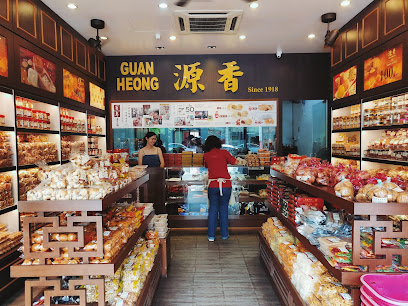
Kedai Jimat (Family Thrift Store) Ipoh
Unearth unique treasures at Kedai Jimat, Ipoh's beloved family thrift store, where sustainability meets style and affordability.
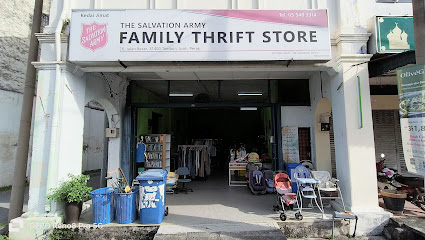
empatkakak (ladies thrift shop ipoh)
Discover unique vintage treasures at Empatkakak, Ipoh's charming thrift shop, where fashion meets sustainability.
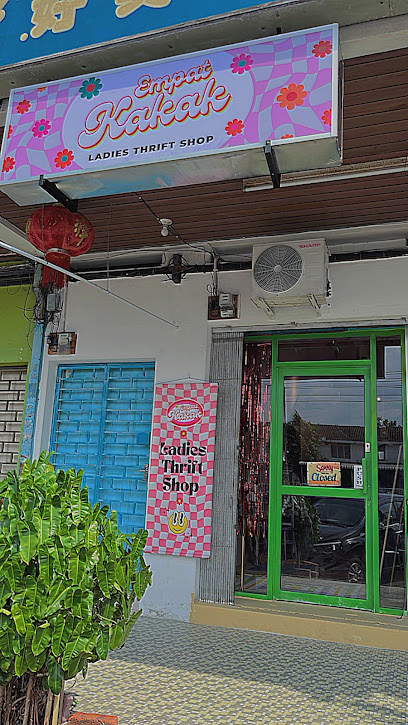
Sky Mex
Discover unique treasures at Sky Mex, your go-to gift shop in the heart of Ipoh Parade, perfect for memorable souvenirs and local artistry.
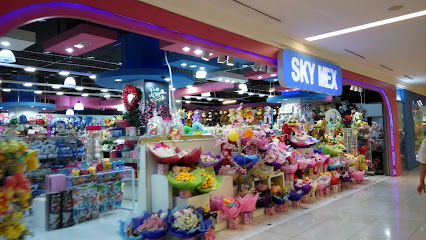
S&J Co. AEON Kinta City
Explore S&J Co. AEON Kinta City in Ipoh for unique gifts and festive treasures reflecting the charm of local craftsmanship.

Essential bars & hidden hideouts
Euro House
Discover the lively ambiance and delectable Western cuisine at Euro House, a must-visit bar and bistro in Ipoh's Taman Jubilee.
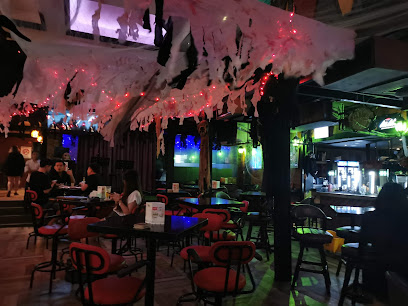
Bricks & Barrels Ipoh
Unwind at Bricks & Barrels Ipoh, the ultimate pub experience offering craft beers, delicious Western cuisine, and exciting nightlife.
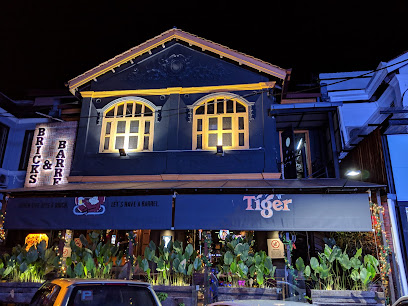
Tiga
Discover Tiga, Ipoh's premier cocktail bar, where expertly crafted drinks and a vibrant atmosphere create an unforgettable nightlife experience.
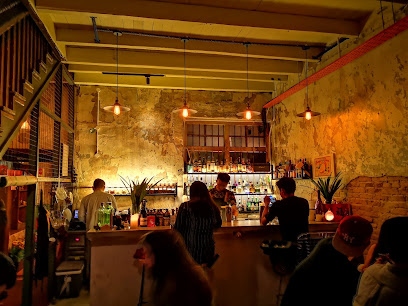
History Bistro Z Ipoh
Experience the rich flavors of Ipoh at History Bistro, where culinary heritage meets modern dining in a lively pub atmosphere.
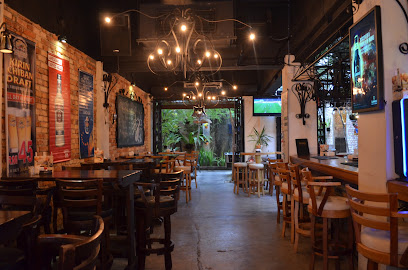
Atas Speakeasy
Discover the exquisite cocktail experience at Atas Speakeasy, a hidden bar in Ipoh offering a delightful mix of ambiance and expertly crafted drinks.
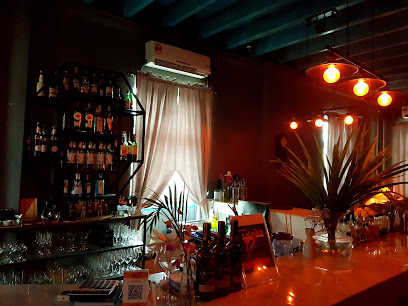
Mines Family Karaoke - Tambun
Experience a night of fun and music at Mines Family Karaoke, the ultimate karaoke destination in Sunway City Ipoh.
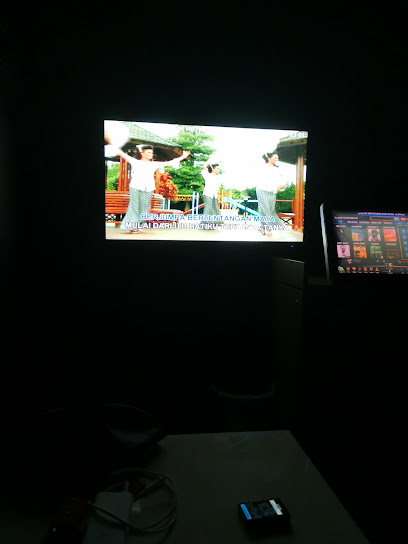
7 Sky Bar & Lounge
Discover the stunning views and delightful bistro offerings at 7 Sky Bar & Lounge in Ipoh, a perfect blend of elegance and relaxation for every visitor.
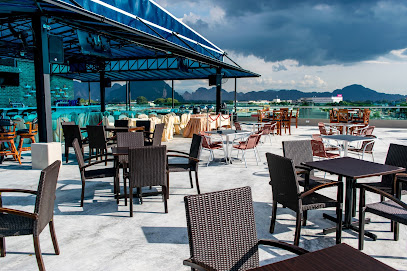
The Deck Gastrobar
Experience the vibrant culinary scene at The Deck Gastrobar in Ipoh, where local flavors meet international cuisine in a stunning setting.
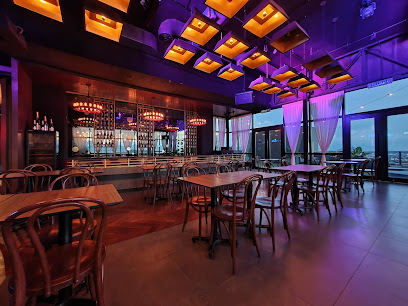
Lumi Cocktail Bar
Experience the vibrant nightlife at Lumi Cocktail Bar, Ipoh's go-to spot for exquisite cocktails and a lively atmosphere.
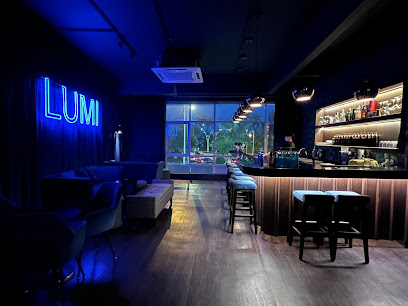
Gor Bar 露天茶座
Experience the tranquil charm of Gor Bar 露天茶座, an open-air bar in Ulu Kinta, where refreshing drinks and lush surroundings create a perfect getaway.
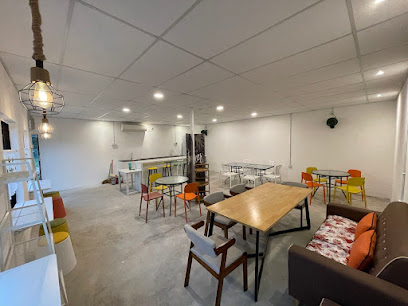
Local Phrases
-
- HelloSelamat pagi
[suh-lah-maht pah-gee] - GoodbyeSelamat tinggal
[suh-lah-maht ting-gahl] - YesYa
[yah] - NoTidak
[tee-dahk] - Please/You're welcomeSila
[see-lah] - Thank youTerima kasih
[teh-ree-mah kah-see] - Excuse me/SorryMaaf
[mah-ahf] - How are you?Apa khabar?
[ah-pah kah-bahr] - Fine. And you?Baik. Dan awak?
[bah-eek. dah-n ah-wahk] - Do you speak English?Boleh cakap Inggeris?
[boh-leh chah-kahp eeng-gehr-ees] - I don't understandSaya tidak faham
[sah-yah tee-dahk fah-hahm]
- HelloSelamat pagi
-
- I'd like to see the menu, pleaseBoleh saya lihat menu, sila?
[boh-leh sah-yah lee-haht meh-noo, see-lah] - I don't eat meatSaya tidak makan daging
[sah-yah tee-dahk mah-kahn dah-yee-ng] - Cheers!Sihat!
[see-haht] - I would like to pay, pleaseSaya mahu bayar, sila
[sah-yah mah-hoo bah-yahr, see-lah]
- I'd like to see the menu, pleaseBoleh saya lihat menu, sila?
-
- Help!Tolong!
[toh-lohng] - Go away!Pergi jauh!
[pehr-gee jah-oo] - Call the Police!Panggil polis!
[pahng-geel poh-lees] - Call a doctor!Panggil doktor!
[pahng-geel dohk-tohr] - I'm lostSaya tersesat
[sah-yah tuhr-seh-saht] - I'm illSaya sakit
[sah-yah sah-keet]
- Help!Tolong!
-
- I'd like to buy...Saya ingin membeli...
[sah-yah een-geen mehm-buh-lee] - I'm just lookingSaya hanya tengok-tengok
[sah-yah hahn-yah tehn-gohk-tehn-gohk] - How much is it?Berapa harganya?
[beh-rah-pah hahr-gahn-yah] - That's too expensiveItu terlalu mahal
[ee-too teh-rah-lah mah-hahl] - Can you lower the price?Boleh turunkan harga?
[boh-leh too-roon-kahn hahr-gah]
- I'd like to buy...Saya ingin membeli...
-
- What time is it?Pukul berapa sekarang?
[poo-kool beh-rah-pah suh-kah-rahn] - It's one o'clockPukul satu
[poo-kool sah-too] - Half past (10)Setengah sebelas
[suh-tuh-ngah suh-beh-lahs] - MorningPagi
[pah-gee] - AfternoonPetang
[peh-tahng] - EveningMalam
[mah-lahm] - YesterdaySemalam
[seh-mah-lahm] - TodayHari ini
[hah-ree ee-nee] - TomorrowEsok
[eh-sohk] - 1Satu
[sah-too] - 2Dua
[doo-ah] - 3Tiga
[tee-gah] - 4Empat
[ehm-paht] - 5Lima
[lee-mah] - 6Enam
[eh-nahm] - 7Tujuh
[too-joo] - 8Lapan
[lah-pahn] - 9Sembilan
[sehm-bee-lahn] - 10Sepuluh
[suh-poo-looh]
- What time is it?Pukul berapa sekarang?
-
- Where's a/the...?Di mana...
[dee mah-nah] - What's the address?Alamatnya?
[ah-lah-maht-nyah] - Can you show me (on the map)?Boleh tunjukkan saya (di peta)?
[boh-leh toon-jook-kahn sah-yah (dee peh-tah)] - When's the next (bus)?Bila bas seterusnya?
[bee-lah bahs suh-teh-roos-nyah] - A ticket (to ....)Satu tiket (ke ....)
[sah-too tee-keht (keh)]
- Where's a/the...?Di mana...
History of Tambun
-
Tambun's history is closely linked to the tin mining boom of the late 19th century. Located just north of Ipoh, Tambun became an important area for tin mining, attracting miners from various regions including China. The discovery of tin deposits transformed Tambun into a bustling settlement, contributing significantly to the economic development of Ipoh and the Kinta Valley.
-
As a result of the influx of miners, Tambun developed a rich cultural tapestry. The neighborhood became home to a diverse population, including Malay, Chinese, and Indian communities. This blend of cultures is reflected in Tambun's festivals, cuisine, and local traditions, contributing to the broader multicultural identity of Ipoh.
-
Tambun is known for several notable historical landmarks, including the Tambun Cave, which features ancient rock paintings believed to date back thousands of years. This cave art, discovered in the 1950s, highlights the area's prehistoric significance and offers insights into the lives of early inhabitants. Additionally, the nearby Perak Cave Temple showcases the region's religious heritage and architectural styles.
-
With the decline of tin mining in the late 20th century, Tambun shifted towards agriculture and tourism. The area is now famous for its fruit orchards, particularly the pomelo, and its natural hot springs, which attract visitors seeking relaxation and wellness. This economic transition reflects the adaptive nature of the community and its ability to embrace new opportunities.
-
In recent years, Tambun has experienced rapid urbanization, with new housing developments and commercial areas emerging. Despite this growth, efforts have been made to preserve the neighborhood's historical and cultural identity. Local initiatives aim to promote heritage tourism, ensuring that Tambun's rich history continues to be celebrated amid modern advancements.
Tambun Essentials
-
Tambun is easily accessible from other neighborhoods in Ipoh. It is located about 10 kilometers north of the city center. You can take a taxi or ride-sharing service directly to Tambun, which generally takes around 15-20 minutes, depending on traffic. Public buses also connect Ipoh city to Tambun, with routes frequently running throughout the day. For those driving, follow Jalan Kuala Kangsar and then turn onto Jalan Tambun to reach the area.
-
In Tambun, getting around is convenient through various means. Local buses and taxis are available for longer distances, while cycling is a popular option for exploring the area, as it allows you to enjoy the scenic surroundings. Walking is also a great way to explore local attractions, especially in the more compact areas. Note that ride-sharing services like Grab are widely used and can be a convenient option for tourists.
-
Tambun is generally considered a safe neighborhood for tourists. However, it is advisable to take normal precautions. Avoid walking alone at night in poorly lit areas. While there are no specific high-crime areas targeting tourists, it is wise to stay alert in crowded locations and safeguard your belongings. Keeping your valuables secure and being aware of your surroundings will help ensure a safe visit.
-
In case of an emergency, dial 999 for police assistance or 112 for ambulance services. There are local clinics and hospitals in Ipoh capable of handling medical emergencies, and it is advisable to have travel insurance that covers medical needs. For minor health issues, pharmacies in the area can provide over-the-counter medications.
-
Fashion: Do dress modestly, especially when visiting places of worship. Avoid overly revealing clothing. Religion: Do respect local customs; it is polite to cover your head when entering religious sites. Public Transport: Do be courteous and offer your seat to the elderly. Don't eat or drink on public transport. Greetings: Do greet locals with a warm smile or a handshake. Eating & Drinking: Do sample local dishes and accept food offerings graciously. Don't refuse hospitality, as it can be seen as disrespectful.
-
To experience Tambun like a local, try visiting the Tambun Lost World of Tambun, a popular theme park and hot springs resort. Engage with local vendors at the Tambun night market, where you can find delicious street food and handmade crafts. For a unique experience, consider visiting the nearby cave temples, such as Perak Cave Temple. Interacting with locals can provide insights into the area's history and culture, so don’t hesitate to strike up a conversation.
Trending Landmarks in Tambun
-
Lost World of Tambun Theme Park
-
Sunway Lost World Hotel
-
Sunway Lost World Theme Park : Hot Springs & Night Park
-
Tambun Pomelo GoChin Agro Farm
-
Tambun Cave
-
Enlightened Heart Buddhist Temple அறிவொளி இதய புத்த கோவில் 打捫心意佛院
-
Bandar Baru Tambun Woodlands Park
-
as homestay tambun ipoh
-
Bandar Baru Tambun
-
八景宮
-
HomestayRumah FARIZ Lost World Of Tambun in Ipoh
-
Gunung Tambun
-
Gunung Ginting
Nearby Cities to Tambun
-
Things To Do in Cameron Highlands
-
Things To Do in Penang
-
Things To Do in George Town
-
Things To Do in Kuala Lumpur
-
Things To Do in Kota Bharu
-
Things To Do in Kuala Terengganu
-
Things To Do in Langkawi
-
Things To Do in Satun
-
Things To Do in Kuantan
-
Things To Do in Malacca
-
Things To Do in Medan
-
Things To Do in Trang
-
Things To Do in Nakhon Si Thammarat
-
Things To Do in Krabi
-
Things To Do in Johor Bahru







